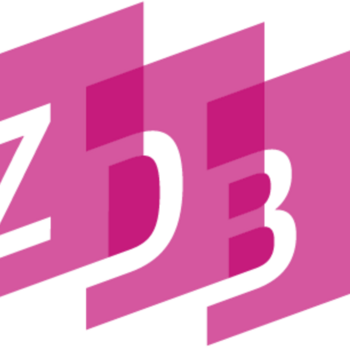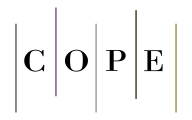Pozicija religije u digitalnom dobu / Position of Religion in Digital Age
DOI:
https://doi.org/10.48052/19865244.2024.1.19Keywords:
faith, religion, symbols, community, digital religionAbstract
Whenever the topic of religion is in question, Heraclitus' thought about the "logos" in the world that "neither hides nor reveals itself" comes to the fore. According to him, "logos" is the universal principle of the cosmos, the principle of the unity of opposites, and to know it one must make a mental effort, which is nothing but the light of faith as such. The "Logos" is the "cosmic connector" and is operative in all things because it unites the two opposite poles, God's speech, and the world. The world is nothing but "symbolic speech of God". Human imagination has the ability to clothe the spiritual ("logos") in sensory form (logic). The interpretation of symbols is based on deepening their contents and enriching their meanings through scientific research and scientific knowledge. The symbolic language of the keyboard (digital religion) is not suitable for such a thing.
Religion, as a variable social phenomenon prone to diffusion, is favored by the digital age in its mission, not knowing what consequences it will experience in the foreseeable future. In order to master the ideas of individuals, by inversion, he wants to present the "external activity" with faith as such, to enter the subjective world of the individual and his intimacy with God. Just as language is the medium of thought, religion is also the medium of faith. In the digital age, man becomes the medium of the media.
References
Blagojević, M. (2005). Religija i crkva u transformacijama društva, Beograd: Filip Višnjić.
Ferguson, R. (2004). The Media in Question. London: Arnold.
Filipović, B. (2005). Budućnost religije, Centar za istraživanja religije Novi Sad, Štamparija Studio Bravo – Subotica.
Gere, C. (2008). Digital Culture. London: Reaktion Books.
Hartley, J. (2007). Kreativne industrije. Beograd: Clio.
Heim, Michael. (2000). Virtual Realism. Oxford: Oxford University Press,
Hjarvard Stig, „Introduction: The mediatization of religion: enchantment, media and popular culture“ u: Northern Lights Volume 6, 2008.
Hoover M. Stewart, (2006). Religion in the Media Age. London: Routledge,
Jukić, J. (2001). Sociološki pristup sekularizaciji, Društvena istraživanja: časopis za opća društvena pitanja, Vol. 10., broj 3., Zagreb.
Kaufmann, J.C. (2006). Iznalaženje sebe. Zagreb: Antibarbarus.
Kung, L., Pickard, R. G, Towse, R. (2008). The Internet and the Mass Media. London: Sage.
Levi, P. (1999). Cybercultura. Gli usi sociali delle nuvoe tecnologie, Milano. IZDAVAČ
Maalouf, A. (2002). U ime identiteta. Zagreb: Prometej.
Marshall, D. P. (2004). New Media Culture. London: Arnold.
McChesney, R. W. (1999). Rich Media Poor Democracy. Chicago: University of Illinois Press.
McLuhan, M. (2008). Razumijevanje medija. Zagreb: Golden Marketing i Tehnička knjiga.
Morgan D., (2008). Key Words in Religion, Media and Culture. London: Routledge.
Ribičić, D., Goluža, V., & Naletilić, I. (2021). Poduzetništvo i religija. Osijek: Sveučilište Josipa Jurja Strssmayera
Schmidt, E. i J. Cohen (2014). Novo digitalno doba. Zagreb: Profil.
Storsul, T. i D. Stuedahl (2007). Ambivalence Toward Convergence. Digitalization and Media Change. Goeteborg: Nordicom.
Taylor, C. (2011). Izvori sebstva — razvoj modernog identiteta, IZDAVAČ, Zagreb,
Vrcan, S. (1986). Od krize religije k religiji krize, Školska knjiga, Zagreb.
Wood, Natalie T., Solomon, Michael R., (2010). Virtual Social Identity and Consumer Behavior. Abingdon: Routledge
Zgrabljić R. N. (ur.), (2011). Digitalno doba. Zadar − Zagreb: Sveučilište u Zadru i Naklada medijska istraživanja.
Downloads
Published
How to Cite
Issue
Section
License
Copyright (c) 2024 Pregled: časopis za društvena pitanja / Periodical for social issues

This work is licensed under a Creative Commons Attribution-NonCommercial 4.0 International License.














